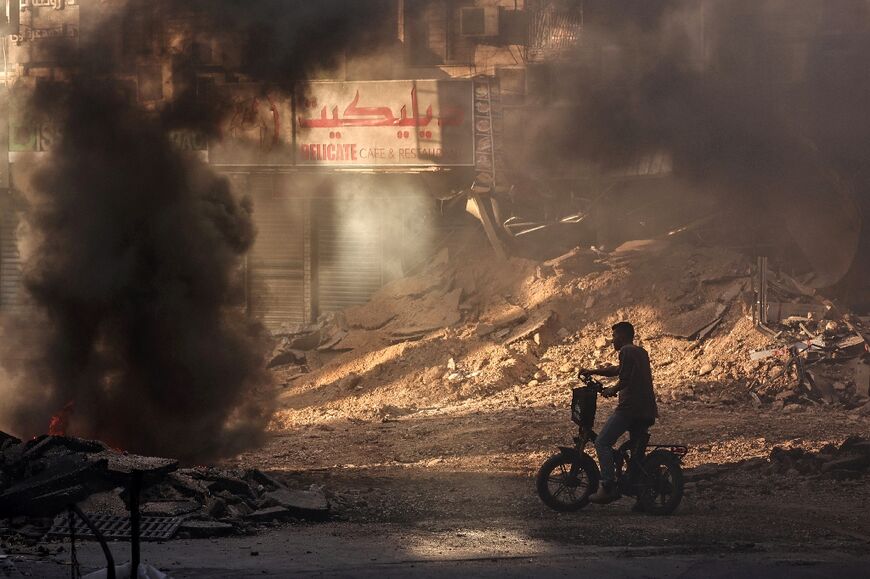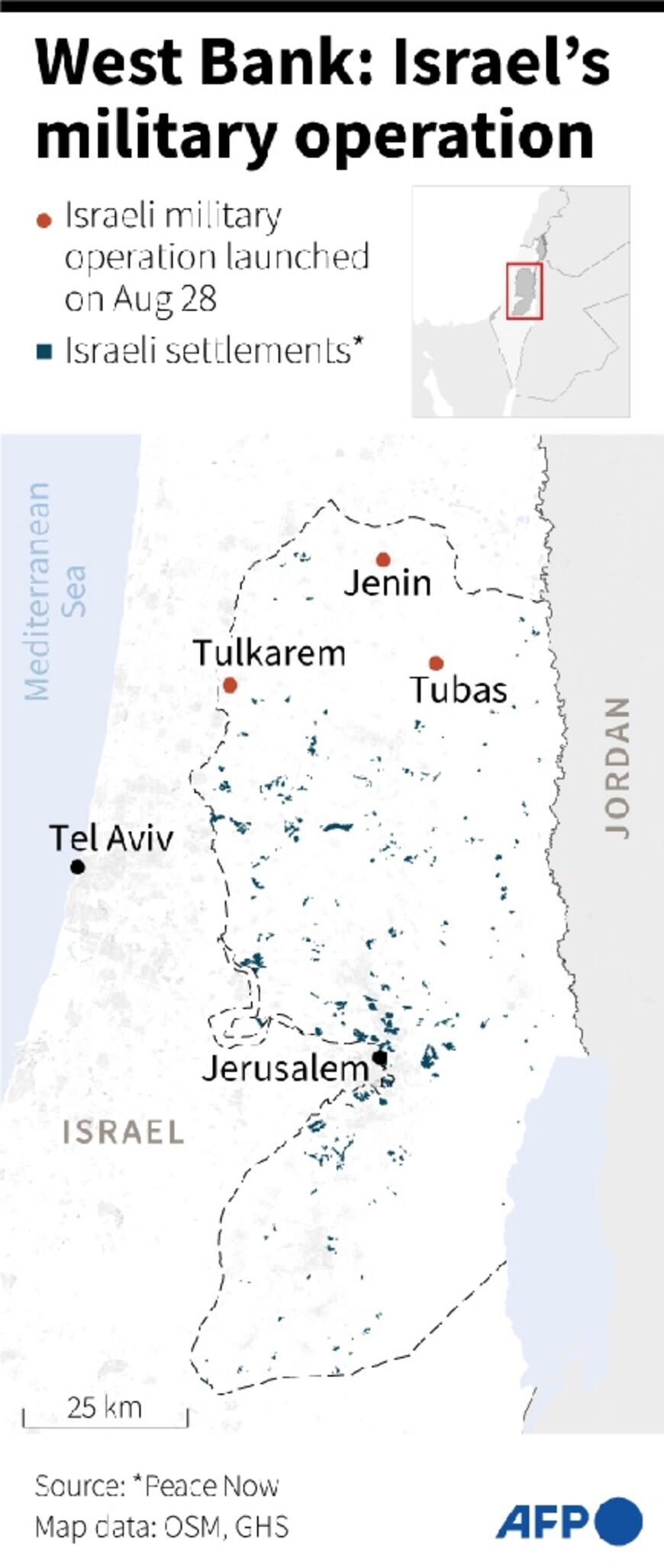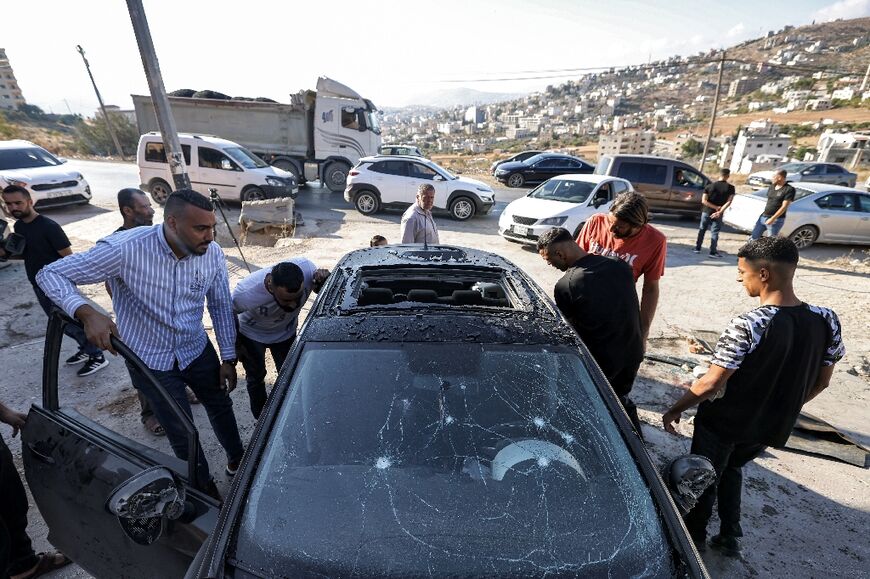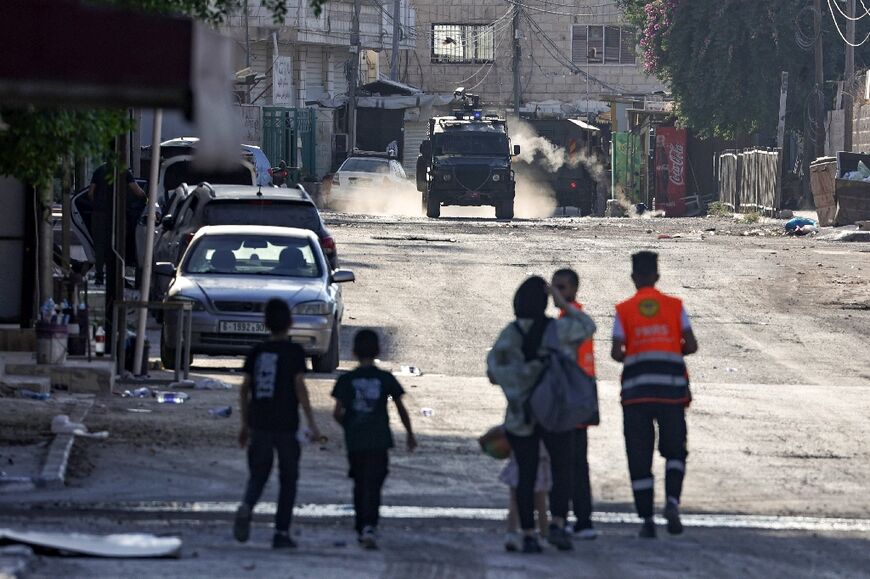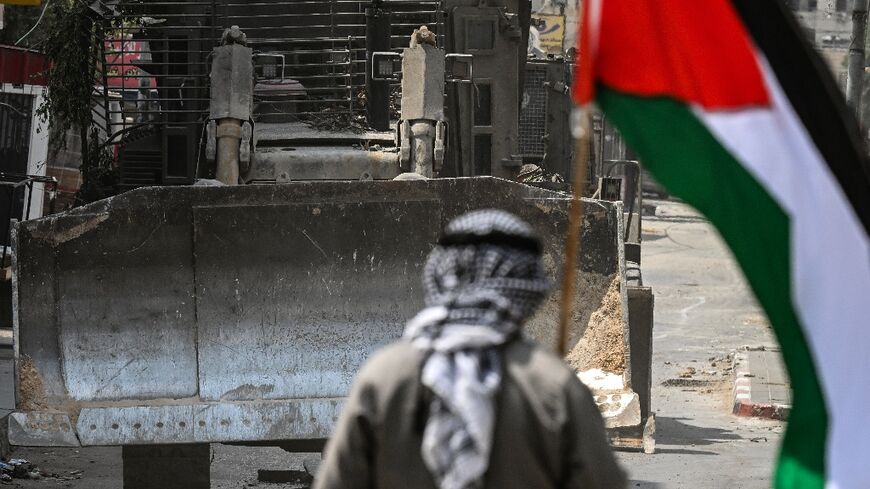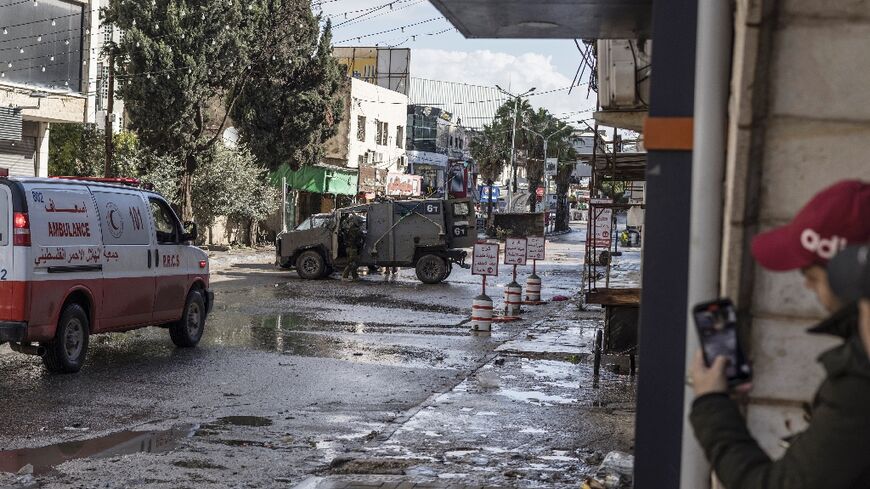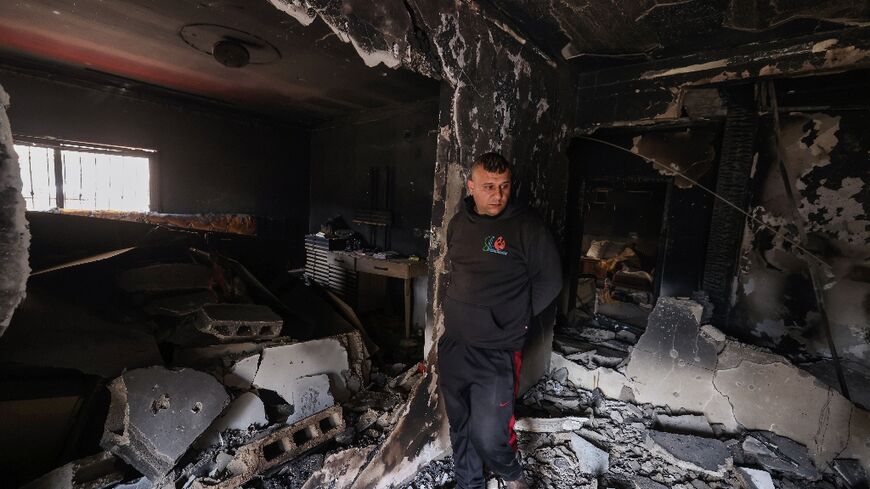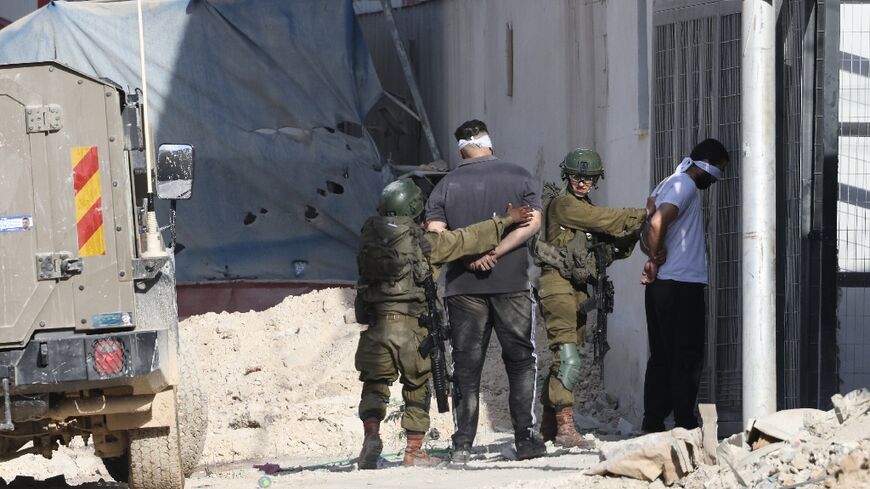Multi-day Israeli raids leave West Bank Palestinians trapped 'in prison'
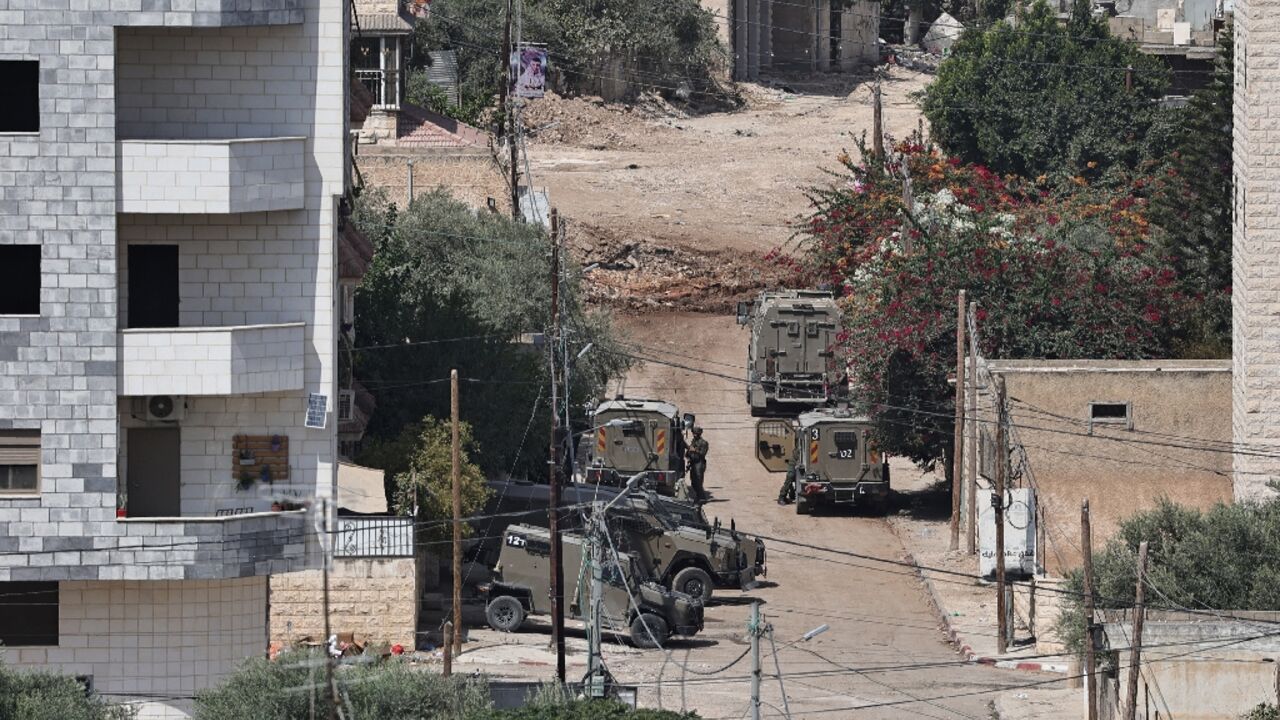
Palestinian man Adnan Naghnaghia has been holed up at home for eight days as Israeli forces were carrying out raids, battling militants and making arrests in the occupied West Bank.
"It's like a prison," said the 56-year-old father of five, a resident of the Jenin refugee camp in the northern West Bank, an area targeted in a series of major Israeli "counter-terrorism" operations since August 28.
Israel has occupied the West Bank since 1967, and its forces regularly make incursions into Palestinian communities, but the current raids as well as comments by Israeli official mark an escalation, residents say.
As the Israel-Hamas war in Gaza nears its 12th month, Defence Minister Yoav Gallant said Wednesday that Israel must use its "full strength" to combat "the resurgence of terrorism" in the West Bank, which is separated from the Gaza Strip by Israeli territory.
"There is no other option, use all the forces... with full strength," said Gallant.
The ongoing raids in the northern West Bank have killed 36 Palestinians since last week, according to the Palestinian health ministry. Some of the dead have been claimed by militant groups as members. Israeli forces have also arrested dozens of Palestinians.
In the latest violence, the health ministry said Thursday five people were killed in a strike on a car in the Tubas area south of Jenin, with the military saying it had targeted "armed terrorists".
The presence of Israeli troops, in their longest operation in decades against West Bank militants, has brought life in Jenin to a standstill, said Naghnaghia.
"They force you to stay inside the house instead of going out and living a normal life".
Venturing out has become so perilous that Naghnaghia was speaking to an AFP correspondent by phone even though they were both in the Jenin camp, just 600 metres (yards) apart.
In the camp's narrow alleys, armoured vehicles and bulldozers have left behind a trail of destruction amid the battles.
Most residents "already left", seeking safety elsewhere, said Naghnaghia.
- 'Exhausted' -
Jenin city and the adjacent refugee camp have long been a bastion of Palestinian armed groups fighting against Israel.
While Hamas does not have a strong presence in the West Bank, opinion polls suggest its popularity has grown among Palestinians during the Gaza war, triggered by its October 7 attack on Israel. Other militant groups like Islamic Jihad are particularly active in the northern West Bank.
Years of repeated raids have made Jenin camp residents "experts" at waiting them out, said Naghnaghia who had stocked up food for days.
But now he fears it may not last long enough.
"We plan for two-three days, not one or two weeks," he said.
On Monday Israeli troops searched the family home where about 20 of Naghnaghia's relatives including children were staying.
Before they left, he recounted, one of the soldiers fired a shot inside the house, at the ceiling.
The 56-year-old said he did not know why the troops were there.
In Jenin city, 68-year-old Fadwa Dababneh has her groceries delivered to her by an ambulance. Other vehicles have largely disappeared off the streets as gunfire rings out, and many roads have been overturned by bulldozers.
For bottled water, "we arranged with the Red Crescent car, they gave us some," she said.
Medics treat casualties, but now also deliver food and other basics, or help residents make necessary trips across the city.
One woman, who asked not to be named, told AFP she had to take an ambulance to make it to a routine checkup at a hospital.
"Just look at it -- so much destruction, so much devastation. People are really exhausted," she said.
- Shortages -
The military operations have forced health professionals to make quick changes to the way they operate. Some, unable to travel home as freely as they used to, are now working 24-hour shifts.
"To leave the hospital now, we need a permit, or we have to coordinate with an ambulance, as the area we're in is dangerous", said Moayad Khalifeh, a 29-year-old doctor near the Jenin camp.
He works at Al-Amal, a maternity hospital which has begun taking in wounded from the raids.
"Most of the activity, clashes and blockades happen right at our door", said Khalifeh.
The hospital's director, Mohammad al-Ardeh, was unable to reach the facility for a week due to the fighting, instead managing operations by phone, and some staff members have been unable to come to work, he told AFP.
Making matters worse, water supply "has been cut off maybe six or seven times" since last week, and there have been frequent power cuts.
Since the Gaza war began on October 7, Israeli troops or settlers have killed at least 661 Palestinians in the West Bank, according to the Palestinian health ministry.
At least 23 Israelis, including security forces, have been killed in Palestinian attacks in the territory during the same period, according to Israeli officials.


